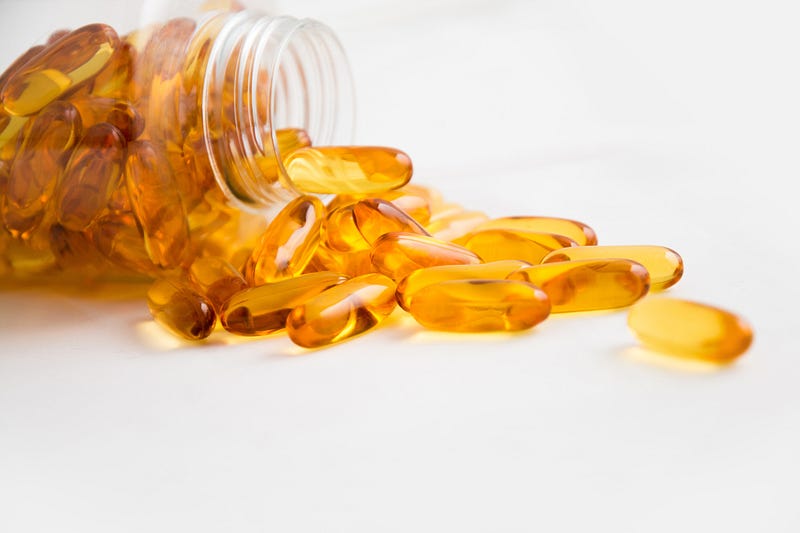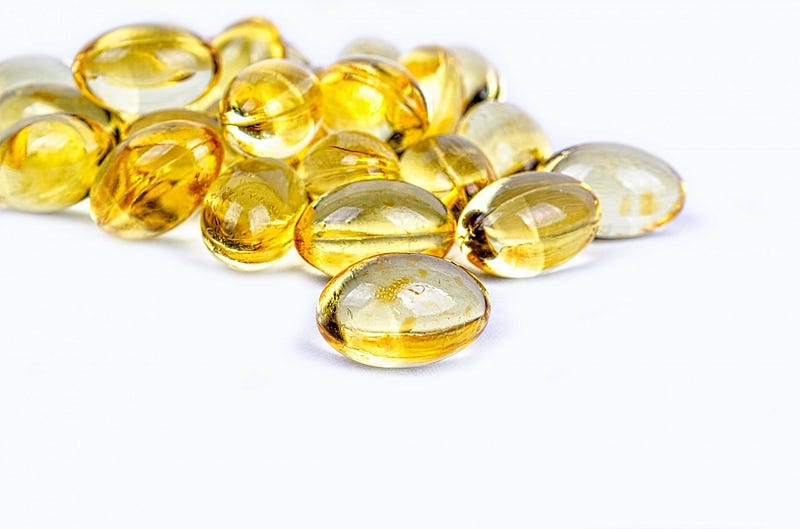# Fish Oil and ADHD: Debunking the Myths
Written on
Chapter 1: Understanding ADHD
ADHD, or Attention Deficit Hyperactivity Disorder, is an intriguing condition. As someone who experiences it firsthand, I can relate to my cousin's portrayal of living with ADHD as a continuous struggle against boredom. I vividly recall one instance where I was engaged in a board game with friends while simultaneously playing a game on my phone, arguing on Twitter, and scrolling through Facebook, only to find that I was still bored. This realization was quite a surprise, as it seems that this is far from typical behavior.
One of the most debated topics regarding ADHD is the use of medication. While it's well-established that various medications can effectively manage symptoms, there is considerable controversy surrounding the long-term use of stimulants, particularly in children. Recently, however, global media outlets reported that a simple fish oil supplement might rival conventional medications in treating ADHD. The implication was that children could avoid harsh drugs and instead benefit from harmless fish oil.

Nevertheless, it appears that this is far from reality.
Fish Oil's Limited Impact on ADHD
When examining the scientific studies surrounding fish oil's effects on ADHD, it can be challenging to pinpoint where misinformation originates. Is it the press office exaggerating the findings, or the media inflating minor results into grand claims? In this case, the fault lies predominantly with the researchers.
The relevant study was a randomized controlled trial in which children were assigned either a placebo or fish oil for 12 weeks. They were assessed before and after the trial using the Continuous Performance Test (CPT) to evaluate ADHD symptoms and other measures.
What did they discover? Essentially, fish oil showed no significant advantage over the placebo in managing ADHD symptoms.

To be more specific, in the CPT's nine assessment areas, there was no significant difference between fish oil and placebo in seven of those areas. Fish oil showed a minor benefit in one area, while the placebo performed better in another.
The headlines that emerged stemmed from a subgroup analysis, where researchers divided the participants based on their fatty acid levels. Among the 29 children with low fatty acid levels, there were two positive outcomes, which is hardly the exciting news that the media portrayed.
Additionally, the study had its own methodological flaws. The researchers conducted around 50 statistical tests; with such a high number of tests, it’s expected to find some positive outcomes purely by chance. Without proper corrections for these multiple comparisons, any apparent benefits of fish oil vanish upon reevaluation.

The study also specifically excluded children who had previously taken ADHD medications, making it impossible to conclude how fish oil compares to conventional treatments.
Hyped Headlines and Misleading Claims
The sensational headlines seem to originate from a statement by one of the study authors in the press release, suggesting that fish oil could be as effective as traditional medications for children with omega-3 deficiencies. However, since the study did not include any pharmacological treatments, this claim is misleading.
Upon reviewing broader research, it becomes evident that fish oil may offer some minimal benefits for individuals with ADHD, but certainly not at the level of standard medications.

The findings indicate that out of all measures of ADHD control, fish oil showed improvement over placebo in only 1 out of 31 tests, with 2 measures performing worse than the placebo. For children lacking omega-3s, the benefits slightly improved, but the results remain inconclusive.
In summary, the evidence suggests that fish oil provides no more benefit than a placebo for ADHD symptoms based on this research. While other studies may present a slightly more optimistic view, the consensus remains that fish oil has minimal effects, if any.
So, for those managing ADHD, it’s wise to hold onto your medications for now.
If you found this information helpful, consider following my work on Medium, Twitter, or Facebook!
You can also tune in to the Sensationalist Science podcast for your weekly dose of scientific insights and media critique.
The first video delves into the relationship between Omega-3 fatty acids and ADHD, featuring insights from Dr. Berg on how these supplements can impact attention deficit issues.
The second video discusses whether Omega-3 supplementation can enhance ADHD symptoms, providing valuable information on the effectiveness of these dietary choices.